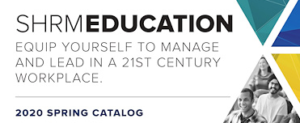The c-suite has expanded over the years. Originally you had basically the CEO, COO, and CFO. Next, depending on the industry came the CIO/CTO (IT), CMO (marketing), and CHRO/CPO (HR and Talent). Some organizations have added depending on need c-suite roles for strategy, diversity, safety, client/customer support, etc.
Basically, the c-suite is a little like empire building. If you’re a CEO with a decent head on your shoulders you want to surround yourself with people who complement your lack of certain skill sets, or skill sets that need more emphasis.
Don’t be surprised if you start to see another addition to the c-suite roster that I’m calling the Chief Crisis Officer!
Think about the crisis’s that many organizations have had to deal in the past couple of years:
COVID – Work from Home/Remote transition
Social Justice/#MeToo/BLM
Major Client issues (social media blowup, bad press, freak of nature accidents, etc.)
Major Employee issues (labor supply, harassment, D&I, pay equity, etc.)
Supply chain issues
IT Hacking issues
Environment Issues
Stuff we haven’t even thought of yet…
If I’m a CEO today, of course, I expect my c-suite partners to own crisis, but I also need a point person who I’m 100% sure their job is to work through crisis and help us mitigate crisis fallout. Ownership of crisis is critical, as it’s a nature of organizational dynamics to want to push crisis off onto other functions.
We continue to hear stories of organizations that handled COVID and most recently the uproar around social justice with great poise and response. We also continue to hear about the organization that totally mishandled these situations. Leadership, and the ability to have someone high enough in the organization to push back, seems to be critical in getting the proper response all the way around.
Where would your “Chief Crisis Officer” come from? I think it’s definitely a personality set vs. a skill set, in terms of coming out of one functional area over another. You would probably want a person who is more of a generalist, than a specialist, but someone who has a keen understanding of how your operations are run. I don’t think you want someone from outside since part of great crisis management is knowing the history.
The person has to be all in on the organization. I want someone who loves the company, our mission, our employees, our customers, all of it. That person will own it all during a crisis. They’ll take all the stakeholder’s viewpoints into consideration. I need someone who is high details, low rules. Get it done. Don’t miss anything. I don’t really care how it gets done in a crisis, as long as it gets done correctly in the end.
I’m not sure I want someone from legal. They get too caught up in risk aversion. Crisis management is about mitigating risk, not eliminating it. This person will have to be confident, as we’ll need them to push forward with not much information or certainty. I tend to believe the best folks at in crisis situations, in the workplace, are female. Confident, good detail orientation, but not cocky. Quick to move, but not so fast stuff will get missed that doesn’t have to be.
Keep your eyes out, the c-suite will be growing in 2020 and beyond, and many organizations across the Fortune 1,000 will be hiring Chief Crisis Officers!




